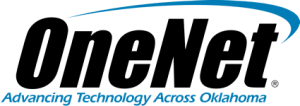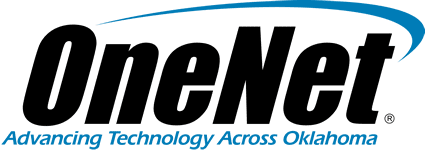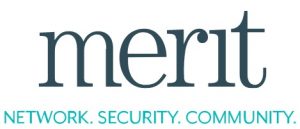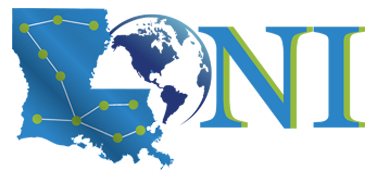MARIA – Bringing Broadband to Virginia’s Communities
 MARIA is a program of Virginia Tech that promotes early access to advanced network technology and services throughout Virginia with the objective of improving quality of life and economic competitiveness in the region. Working closely with scientists, educators, economic developers, government, regulators, and businesses, NetworkVirginia supports a wide range of needs from leveling the playing field in rural and underserved communities to providing the world’s most advanced research network infrastructure for regional universities and labs.
MARIA is a program of Virginia Tech that promotes early access to advanced network technology and services throughout Virginia with the objective of improving quality of life and economic competitiveness in the region. Working closely with scientists, educators, economic developers, government, regulators, and businesses, NetworkVirginia supports a wide range of needs from leveling the playing field in rural and underserved communities to providing the world’s most advanced research network infrastructure for regional universities and labs.
A Tradition of Technology Leadership
Launched in 1996 and originally designed to handle advanced multimedia applications for research and education, the network today is open to anyone including businesses. In addition to high-performance intranet and Internet services, MARIA offers access to advanced national networks, including ESnet, Internet2, Mid Atlantic Crossroads and National LambdaRail. NetworkVirginia is unique in the strength of public-private partnerships built on strong alliances and years of trust.
Creating Open Access Infrastructure for the Commonwealth
Starting with the investment of tobacco indemnification funds in the early 2000s, the MARIA team has helped to guide a state plan to build and develop open access broadband infrastructure for economic development and revitalization. The non-profit Mid-Atlantic Broadband Cooperative (MBC) was established in 2004 to build and manage optical networks based on a “geodesic mesh” concept blanketing rural Virginia with diverse, high count fiber. Building on the public-private alliance strategy, MBC operates strictly as a wholesale provider with membership open to all. To date, MBC has built over 1,500 miles of fiber and has more than sixty provider members including large incumbents, small startups, international carriers and others. Rather than being targeted as a competitive threat, MBC is providing services and building trust within the provider community. MBC is sustainable, operating on a cash positive basis and touts investment of over $300 million and 2,200 jobs created in the region.
Aggregation, Peering, and Cloud Services in the National Capital Region
Way back in 1996 NetworkVirginia launched the first operational “gigaPOP” in the Washington DC area to provide aggregated access to research and education (R&E) networks of the day. The Mid-Atlantic Crossroads evolved from this project. More recently, MARIA and the members of the Mid-Atlantic Terascale Partnership (MATP) have created the National Capital Region Aggregation Facility or NatCap. NatCap is built on a packet optical/DWDM network overlaying a fiber ring interconnecting several strategic points in the metropolitan area including the major R&E network hub in McLean, Equinix, and a new, seven-story research center in the Ballston community of Arlington. NatCap provides a nexus for the broader open access fiber serving the region to provide access to a rich array of services with dramatic cost advantages. MATP member universities with diverse optical access to NatCap can reach national and international R&E networks, commodity Internet and cloud services, and evolving new services like Internet2’s NET+ offerings.
eCorridors: Supporting Community-Driven Innovation
eCorridors is a sister program to MARIA. eCorridors seeks to foster leadership and provide resources for broadband infrastructure and community development particularly for rural and underserved areas. Building on the early success of the Blacksburg Electronic Village, the world’s first broad commercial application of Internet technology, and the e-58 project at Virginia Tech, eCorridors has grown into a highly successful outreach program with regional and national reach. The eCorridors team has core competencies in broadband mapping and GIS application development combined with expertise in broadband strategy and policy planning. eCorridors has provided support to numerous communities and has provided leadership and support for state and national broadband mapping efforts including the federal Broadband Technologies Opportunities Program. The AccelerateVirginia program, which seeks to engage and educate the public regarding broadband availability, recently won a Virginia Governor’s Technology Award for IT as Economic Development Driver.
For more information on MARIA, please visit: http://www.marialliance.net/infrastructure-network-operation/maria-network.
Additional details on the eCorridors program can be found at: www.ecorridors.vt.edu
Information on the Mid-Atlantic Broadband Cooperative is available at: www.mbc-va.com
The NetworkVirginia Program Director is Richard Hach, rhach@vt.edu
 As a division of the Oklahoma State Regents for Higher Education, OneNet’s mission is to advance technology across Oklahoma. OneNet serves colleges and universities, research centers and laboratories, public and private schools, libraries, tribal organizations, hospitals and clinics, nonprofit organizations and local, state and federal governments.
As a division of the Oklahoma State Regents for Higher Education, OneNet’s mission is to advance technology across Oklahoma. OneNet serves colleges and universities, research centers and laboratories, public and private schools, libraries, tribal organizations, hospitals and clinics, nonprofit organizations and local, state and federal governments.




 MARIA is a program of Virginia Tech that promotes early access to advanced network technology and services throughout Virginia with the objective of improving quality of life and economic competitiveness in the region. Working closely with scientists, educators, economic developers, government, regulators, and businesses, NetworkVirginia supports a wide range of needs from leveling the playing field in rural and underserved communities to providing the world’s most advanced research network infrastructure for regional universities and labs.
MARIA is a program of Virginia Tech that promotes early access to advanced network technology and services throughout Virginia with the objective of improving quality of life and economic competitiveness in the region. Working closely with scientists, educators, economic developers, government, regulators, and businesses, NetworkVirginia supports a wide range of needs from leveling the playing field in rural and underserved communities to providing the world’s most advanced research network infrastructure for regional universities and labs.
 MCNC is a non-profit, client-focused technology organization. Founded in 1980, MCNC owns and operates the North Carolina Research and Education Network (NCREN), one of America’s longest-running regional research and education networks. With 40 years of innovation and success, MCNC continues to provide high-performance technology and managed services for education, research, libraries, health care, public safety, and other community anchor institutions throughout North Carolina.
MCNC is a non-profit, client-focused technology organization. Founded in 1980, MCNC owns and operates the North Carolina Research and Education Network (NCREN), one of America’s longest-running regional research and education networks. With 40 years of innovation and success, MCNC continues to provide high-performance technology and managed services for education, research, libraries, health care, public safety, and other community anchor institutions throughout North Carolina.
 The Metropolitan Research and Education Network (MREN) is an advanced, high-performance, regional network supporting organizations in seven states in the upper Midwest. MREN’s primary focus is on providing advanced digital communications for leading-edge research and educational applications, primarily communication services for data intensive science. MREN is a founding member of the Pacific Research Platform initiative (PRP), which is an NSF support project, developing a regional Science DMZ that extends from the west coast to the StarLight facility. Recently, MREN has been involved in the PRP efforts to support a National Research Platform (NRP) pilot project.
The Metropolitan Research and Education Network (MREN) is an advanced, high-performance, regional network supporting organizations in seven states in the upper Midwest. MREN’s primary focus is on providing advanced digital communications for leading-edge research and educational applications, primarily communication services for data intensive science. MREN is a founding member of the Pacific Research Platform initiative (PRP), which is an NSF support project, developing a regional Science DMZ that extends from the west coast to the StarLight facility. Recently, MREN has been involved in the PRP efforts to support a National Research Platform (NRP) pilot project.


 Merit Network is the nation’s longest-running research and education network. Merit owns and operates 4,000 miles of fiber optic infrastructure throughout Michigan. We offer networking, security and community services to nonprofits.
Merit Network is the nation’s longest-running research and education network. Merit owns and operates 4,000 miles of fiber optic infrastructure throughout Michigan. We offer networking, security and community services to nonprofits.
